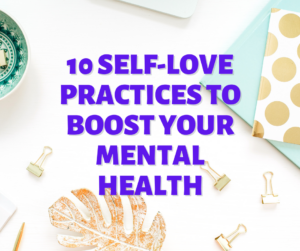It’s a familiar sting. You pour your heart into a friendship or crush, daydreaming about a future together. But they just don’t feel the same. This is the often painful reality of unrequited love. It’s more common than you think, a shared human experience regardless of age, background, or the coordinated universal time.
Table of Contents:
- Understanding Unrequited Love
- Coping with Unrequited Love
- Dealing With Rejection
- When Unrequited Love Turns Toxic
- Conclusion
Understanding Unrequited Love
Unrequited love is romantic affection that isn’t returned. The object of your affection may be unaware of your feelings or explicitly reject them. Merriam-Webster defines unrequited as “not reciprocated or returned in kind.”
This type of love exists in various forms. It could be a crush on a friend, longing for a coworker, or infatuation with someone unavailable. Sometimes, this unrequited affection can lead to a “rate limit exceeded” feeling, where your emotional capacity is overwhelmed.
Why Does Unrequited Love Happen?
Dr. Roy Baumeister’s research highlights a pattern: people often fall for those they perceive as more desirable. This could be due to physical appearance, charisma, intellect, or social standing.
This mismatch in perceived desirability can increase the likelihood of unrequited love. His research published in the New York Times explains that this pursuit creates the risk that these individuals will eventually find their love unrequited.
Often, unrequited love blossoms from friendship. Regular interaction fuels these feelings, whether at work, school, or social gatherings.
This creates a difficult situation. You want to confess your feelings, but the fear of rejection keeps you silent.
The Emotional Rollercoaster of Unrequited Love
Unrequited love is painful because the lover’s feelings are not reciprocated. There can be equally difficult consequences for the person rejecting unwanted affections.
Rejecting someone can elicit anxiety, guilt, and other negative emotions. This is according to The New York Times and despite Eric Berne writing about “apparent disdain” in Sex in Human Loving.
This doesn’t mean unrequited love makes one weak or strange. It highlights the complexities of attraction, confirmed by psychology and science.
Coping with Unrequited Love
How do you deal with the pain and frustration of unrequited love? How do you begin to move on? Acknowledging your feelings and understanding the “uid rate limit” of your emotional capacity are good first steps. So, take a deep breath and prioritize yourself on Sat Dec, if you need a specific timeframe.
Acknowledge Your Feelings
First, admit what’s happening. You’re allowed to feel disappointed, sad, confused, or all three. If unrequited love arises within a friendship, it might cause great confusion.
Ignoring these feelings makes things worse. Pretending nothing happened buries uncomfortable feelings, allowing suppressed resentment to damage the relationship over time. WebMD offers helpful advice for recognizing your feelings.
Create Some Space
Constantly being around the object of your affection while feeling vulnerable can be detrimental. It creates awkward interactions and allows feelings to fester.
Space can help reframe expectations. This likely involves physical distance and a break from communication, like texts or calls. Self-care is also important. VeryWell Mind offers guidance on creating personal space.
Focus On YOU.
Pour your energy into personal growth and self-love. Instead of trying to be appealing to them, explore your hobbies.
Learn something new by reading a book or taking a yoga class. Focus on becoming mentally, physically, emotionally, and spiritually well. Though Eric Berne suggests one-sided love brings suffering, it can become a launch point for better things when rechanneled effectively.
Shift Your Perspective
Sometimes, admiration becomes idealization based on our wishes, not the other person’s reality. Consider Dante and Beatrice—an extreme example. Dante was intensely lovestruck, while Beatrice seemed apathetic to his pain.
Often, infatuation stems from idealized imaginings. If unrequited love becomes a mutual relationship, the fantasy fades with familiarity. You might even be grateful your crush wasn’t returned, avoiding future pain.
Dealing With Rejection
Rejection, or the fear of it, creates anxiety and emotional angst. Wikipedia’s page on unrequited love mentions this anxiety. We’ve discussed why unrequited love happens and steps to move forward. But what if you’ve confessed your feelings and faced explicit rejection?
It takes courage to confess romantic feelings, so applaud yourself. While it hurts, it’s about growth and courage.
Acceptance and Time are Your Allies
Rejection stings, making self-love and space challenging. Time and acknowledgment are your main supports for coping with this grief.
Facing feelings is hard. Sometimes things just “suck,” but if rejection doesn’t hurt, were the feelings sincere?
When Unrequited Love Turns Toxic
Unrequited love, while common, can become unhealthy. Love can have unusual psychological benefits even when rejected, teaching self-reliance or deepening friendships. Consider this, especially regarding “uid rate,” or how often you focus on the other person. This self-reflection can be a starting point on Sat Dec, or whenever you choose to start.
Recognizing Obsessive Behavior
Idealizing an unresponsive person becomes toxic when it becomes obsessive. This takes natural emotional pain into unproductive places like jealousy and stalking.
Consider if your feelings involve jealousy over things they’re not involved in. Or when daydreaming becomes a fantasy detached from reality. These are signs of toxic patterns, not genuine expressions. These situations require professional counseling to create balance and self-care strategies focused inward. Don’t forget the coordinated universal time if scheduling professional help becomes difficult.
Unrequited love stings. It’s like a butterfly that struggles no matter how carefully you hold it. Releasing it allows space for each of you. Maybe you’ll fly separately, or maybe as better friends later.
Conclusion
Unrequited love is tough, but a common experience. These ideas offer insight and hope for painful times when your love wasn’t returned. Acknowledge your disappointment, allow space for healing, and nurture yourself. Sometimes, unrequited affection saves you from greater grief later. It can provide clarity before deeper entanglement creates bigger emotional scars.


